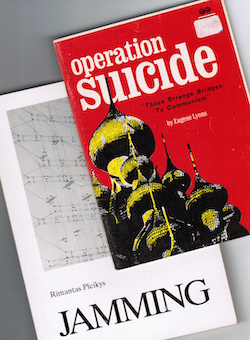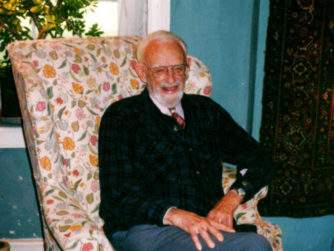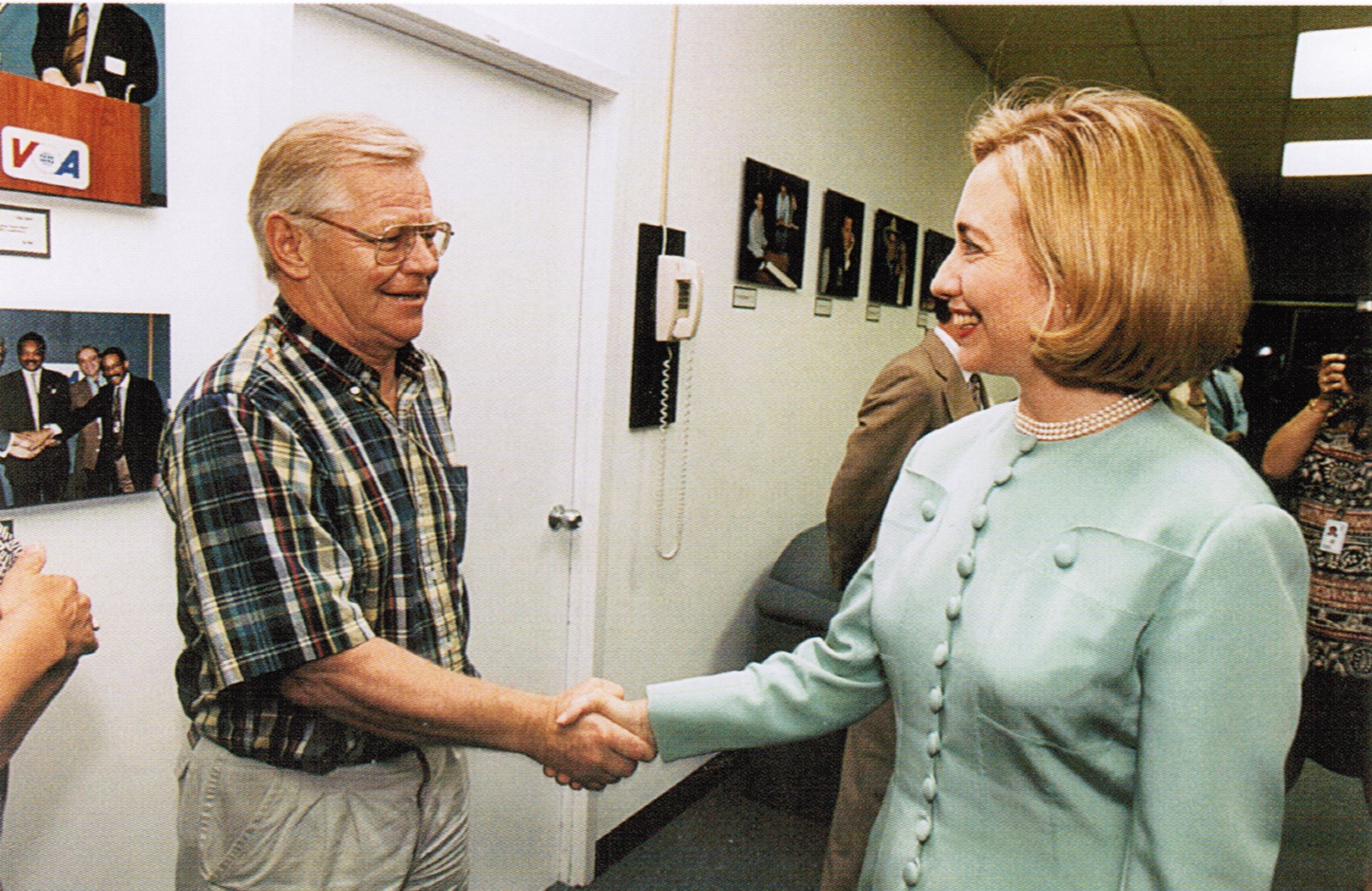On August 20, 1980, the Soviet Union resumed jamming radio broadcasts by the Voice of America (VOA), the BBC, and the Deutsche Welle (DW). Soviet jamming was a sign of the effectiveness of Western radio broadcasts. Radio Free Europe and Radio Liberty were consistently jammed during the Cold War. The Voice of America was jammed only during some periods. Jamming of the Voice of America resumed during the rise of the independent Solidarity trade union movement in Poland. According to the former VOA Polish Service chief, Ted Lipien, the Polish Service was able to improve its broadcasts already in the summer of 1980 thanks to the support of the then-VOA Director Mary Bitterman (1980-1981), but a major expansion of VOA Polish broadcasts and their audience size in Poland occurred under President Reagan’s administration after he took office in January 1980.
VOA DIRECTOR MARY BITTERMAN: On August 20, 1980, we, and the BBC, and Deutsche Welle were simultaneously jammed because of what was happening in Gdansk, and Lech Walesa, and Solidarity movement. And I think that the Soviet Union was very disturbed to think that somebody in one of the satellite countries could rise up and cause such problems.
I think the Voice of America has such an important role to play, and that’s why I become concerned when there are reductions, or when we build up in one area and just reduce enormously in another.
If the Voice of America has a presence with the certain language to a certain country or cultural group, when we decide that we’re just going to stop that, I don’t think we’re always thinking about what the impact is on that community. Is that community to understand that we no longer as Americans have any interest in that community?
Ted Lipien for Cold War Radio Museum

In his book Operation Suicide: “Those Strange Bridges to Communism,” published in 1967, American journalist Eugene Lyons, a former communist sympathizer who interviewed Joseph Stalin but later became an ardent anti-communist, wrote about Western radio broadcasts to the Soviet Bloc:
Broadcasts from abroad, except for the mild, toothless varieties, are jammed. (New York: Twin Circle Publishing Company, 1967), p. 23.
In his book Jamming, Rimantas Pleikys, former Lithuanian Minister for Communications and Informatics (1996–1998), wrote:
The Soviet Union, for the purposes of propaganda, temporarily stopped the jamming of Voice of America, BBC, and Deutsche Welle programs.
During the period from June 19, 1963, until August 1968 when the Soviet invasion of Czechoslovakia began, the Soviets did not jam the Voice of America, BBC, and Deutsche Welle. The USSR again did not interfere with VOA, BBC, and DW broadcasts from 1973 to 1980.
However, Russian-language broadcasts and other former USSR language programs of Radio Liberty were continuously jammed by the Soviets from March 23, 1953 until November 29, 1988. During the Cold War, the Soviet Union also jammed various language programs of Radio Free Europe (RFE), as did during various periods some communist regimes in East-Central Europe.
Jamming was a sign of the effectiveness of these broadcasts.
The true history of the first ten years of the Voice of America is quite different from the official, sugared version promoted by the organization’s leaders and VOA’s public relations specialists. Books written by former VOA officials also present VOA’s history in an entirely different manner from how journalists like Eugene Lyons or members of Congress who had worked and served during those years would have seen it. Lyons had no doubts that some of the early Voice of America officials and employees were pro-Soviet Kremlin and pro-communist “subversives.” However, Lyons was able to write truthfully in Reader’s Digest in 1954 that these “subversives” were no longer employed by VOA:
Without doubt some “subversive” individuals formerly found their way into VOA, as into other agencies in Government. Fortunately the Voice has cleared house. Ardent anti-Communists on the inside are now convinced that no known Communists or Communist sympathizers remain.
Eugene Lyons, “How Good Is The Voice of America,” Reader’s Digest, June 1954.
In 1954, VOA broadcasts to Poland and to the Soviet Union were still jammed. In later years, VOA broadcasts to Poland became softer and did not change substantially until the start of the Reagan administration in 1981, although some improvements were made during the brief tenure of Mary Bitterman who was the VOA director in 1980. Radio Free Europe Polish broadcasts remained hard-hitting and had a considerably larger audience in Poland than VOA programs until the 1980s, when the VOA Polish Service more than quadrupled its audience reach with changed programming made possible by the Reagan administration.









